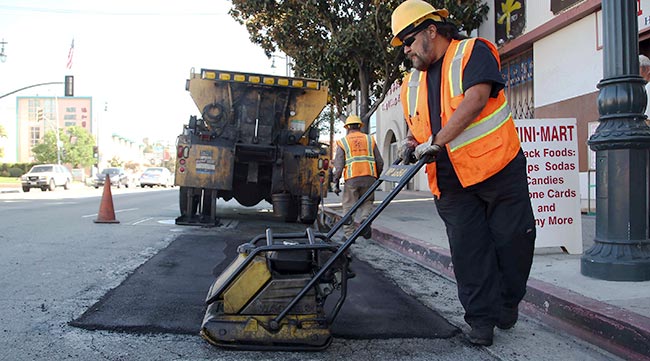CALIFORNIA PERSONNEL BOARD RULES THAT FAILING A URINE TEST FOR MARIJUANA IS NOT PROOF OF EMPLOYEE’S IMPAIRMENT OR GROUNDS FOR DISMISSAL
June 17, 2021 – The California State Personnel Board (SPB), established in the state constitution, provides direction to departments about civil service laws, rules, and policy, and also investigates and adjudicates alleged violations of civil service law which are filed by employees, applicants, and members of the public.
Darrin Harper brought such an allegation against the California Department of Transportation, which refused to reinstate him on his job after he failed a urine test for marijuana use. The SPB ruled that a urine test does not establish that an employee is under the influence of marijuana when reporting for duty, and therefore “does not justify discipline.” The ruling reinstates Mr. Harper to his CA DOT job.
Employees who are under federal drug-testing mandates (like truck drivers) are not covered under the ruling, nor are those “impaired or under the influence from marijuana, alcohol, or any other substance while at work or while on standby for work.” However, the argument that Harper was in a “safety sensitive” position didn’t fly since those prohibitions “only extend to state employees while they are on duty or on standby for duty. It is intended to ensure a safe workplace not to serve as a bar to marijuana use or alcohol consumption,” drawing a distinction between a drug-free workforce and a drug-free workplace.
The ruling concludes (amusingly), “the Board notes that it does not take a position on whether using marijuana is a good thing or a bad thing.” It goes on to say, “The voters have spoken and legalized it in the State of California. Given that reality, State Agencies are powerless to discipline employees, like Appellant, whose test showed only that marijuana had been ingested or used sometime in the past, but that Appellant was not under the influence of marijuana while on duty.”
The SPB ruling should protect most state employees against employment discrimination due to unwarranted drug testing, at least for inactive THC metabolites (as urine and hair testing do). Unfortunately it won’t protect government workers at the city or county levels, nor employees at private companies.
A Cal NORML-sponsored bill to protect employees in California against drug tests for marijuana that do not prove impairment, AB 1256, has been introduced in the legislature as a two-year bill, to be heard in committee later this year or in 2022. Read more about Cal NORML’s employment rights campaign
Excerpts from CA State Personnel Board decision at: https://www.spb.ca.gov/content/precedential/Harper031721.pdf
In this case, Appellant, a CalTrans Highway Maintenance Worker, submitted to a drug test upon his return to duty after an extended leave of absence. The urinalysis test revealed the presence of delta 9 tetrahydrocannabinol (THC) [sic – it was an inactive metabolite] in his system, which establishes that Appellant had, at some prior point in time, inhaled or ingested marijuana or a marijuana-infused substance. There were no allegations in the Notice of Adverse Action (NOAA), nor proof at the evidentiary hearing, that Appellant was under the influence of marijuana when he reported for duty or on standby for duty or that he possessed or used marijuana while on duty or on standby. Under these circumstances, a positive urinalysis test for marijuana, without more, does not justify discipline under any of the charges in the NOAA.
Respondent, however, contends that, by virtue of designating Highway Maintenance Workers under California Code of Regulation, title 2, section 599.9613 testing positive for marijuana as a safety sensitive employee is a basis for discipline. As discussed in the adopted proposed decision, however, the prohibitions under section 599.960, subdivision (b), only extend to state employees while they are on duty or on standby for duty. It is intended to ensure a safe workplace not to serve as a bar to marijuana use or alcohol consumption.
This decision does not impact peace officers who are expressly prohibited from using any mind-altering substance regardless of its legality. To protect the public and ensure the safety and security of its correctional institutions, the state must ensure that its peace officers do not use illegal drugs, or misuse prescription drugs, unauthorized or other illegal mind-altering substances under any circumstances, (Cal. Code of Reg., tit. 2, § 599.960, subd. (e).)
Nothing in this decision should be interpreted to excuse or shield an employee from discipline if they are impaired or under the influence from marijuana, alcohol, or any other substance while at work or while on standby for work. Such conduct remains prohibited under section 599.960, subdivision (b), and may also violate the employing department’s workplace policy.



